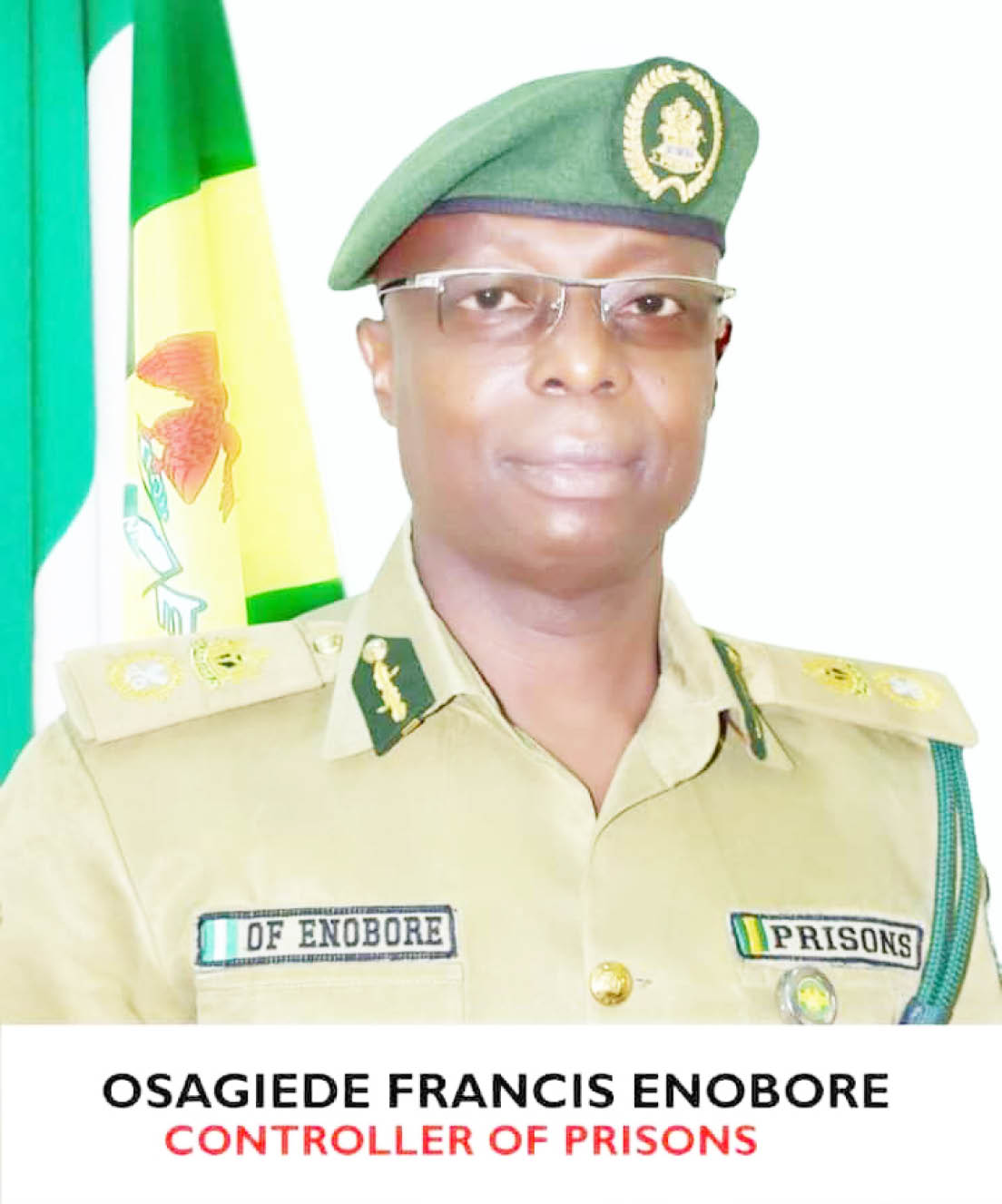Francis Enobore is the Public Relations Officer of the Nigerian Correctional Service. In this interview, he speaks on the status of inmates with particular focus on the welfare of the females. Excerpts:
What is the status of custodial facilities for female inmates?
Where the females stay in custody has all female and no male officers there. All their conveniences, their hair saloon etc are separate. Where the officer-in-charge is going for inspection or a doctor is to attend to them, they go in groups.
The visitors will give warning to them with the female-in-charge who will tell them that the officer in charge or the doctor on duty is coming with the team, so all the inmates would dress properly and they are given time to do that before they would open the gate from inside for them to go in and when they finish whatever they are doing, all of them would troop out.
What is the population like?
The females are fewer in number than the males. For the males, because of the high population – where the carrying capacity is 50, you have more than 80 people there managing.
For their female counterparts, you may see a cell may be made for 20 people, but only three or four will be there. They are very few. It is obvious that fewer females commit offences than males. The males are a bit adventurous and societal pressure is more on them than the females. Those, who can’t manage the societal pressure, end up soiling their hands.
Are there special protocols for handling the few females in custody?
You know, specifically, we regard females as vulnerable group. We have specially designed treatment manual for attending to them. As they are coming in, the first thing we do is to carry out pregnancy test to ascertain the state of their health. In instances where it is ascertained that they are pregnant, we do follow up to know the person responsible and to maintain that relationship. Where they don’t know who is responsible, because some of them are from very lowly background, what we do is to get in touch with their family to let them know the status of their child so that they can also help us to do the follow-up.
From that day of the positive pregnancy result, we register them for ante-natal care, and if they stay long enough, we also take them to standard hospital where you have trained doctors, midwives and all the professionals in medicine. However, we still register them in tertiary care facilities in case there is any.
The present DG of the Nigerian Correctional Service, Haliru Nababa, is very passionate about increasing the frontiers of providing for the needs of these vulnerable groups.
There are reports of detention of underaged in same custody with adults?
When an inmate comes to us with a valid warrant, we search the warrant. And if the bearer of the warrant says this is the age, we have nothing other than to say no problem. But if we have cause to believe that the person’s age is far less than that, we go to the magistrate to say “your lordship we have doubts” or the parents can come.
It is very unusual that an underaged commits heinous crimes like murder and the trial process has not been concluded for the judge to transfer to any of our juvenile training institutions or Borstal homes. We have Borstal homes for handling young offenders. We have four now.
What the judge will do is to send them to our custody and within that period, what we do is to create a makeshift for the child so that it is not violated in the adult cell. But that situation is very, very rare.
What has been the impact of the change of name to correctional service?
It is mandated with a solid instrument that has so many areas designed to address the plethora of challenges that the Nigerian Correctional Service is faced with. Section 37 of the act states that each state of the federation should have separate female custodial facility. You may have a very large yard with another prison for females. Each state should therefore have facilities meant for female inmates.
In addition to that, what we are looking at is for them to enjoy the entire package of reformation and rehabilitation like their male counterparts. Nothing stops them from participating in farming, gardening or vocational facilities.

 Join Daily Trust WhatsApp Community For Quick Access To News and Happenings Around You.
Join Daily Trust WhatsApp Community For Quick Access To News and Happenings Around You.


